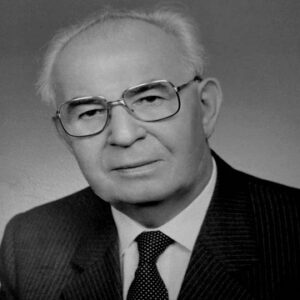Gustav Husak was a Slovak politician who led Czechoslovakia from 1975 until 1989 as President. He had been a long-time member of the Communist Party in Slovakia and rose to prominence following the Soviet bloc invasion in 1968, which put an end to the Prague Spring. He was interested in politics since he was a child and joined the Communist Youth Union when he was just 16 years old. His interest in politics intensified over time, and after finishing his law studies, he became involved in underground communist operations. He was a fervent anti-fascist who rose to prominence as one of the leaders of the 1944 Slovak uprising against a Nazi-backed puppet government. He was also arrested for his political activities, but nothing could stop this young man’s ambitions, and he remained steadfastly committed to his cause. He was imprisoned for several years for resisting Josef Stalin, but he reestablished himself politically after his release, ever the resilient soul. He rose through the ranks of the Communist Party of Czechoslovakia to become its Secretary-General, a position he held for nearly two decades. In 1975, he was elected President of Czechoslovakia, a position he held until 1989. The period of his reign is known as the “Normalization” period.
Childhood and Adolescence
Gustav Husak was born in Pozsonyhidegkt, Pozsony County, Kingdom of Hungary, Austria-Hungary (now known as Dbravka in Bratislava, Slovakia) on January 10, 1913. His father was a jobless person.
He went to Bratislava’s grammar school. At the age of 16, he became interested in politics and joined the Communist Youth Union.
He desired to be a lawyer, so he enrolled in the Comenius University’s Law Faculty in Bratislava in 1933. In the same year, he became a member of the Czechoslovak Communist Party (KSC).
Gustav Husak was a strong Communist who was captivated by Marxist philosophy. He began practicing law after finishing his studies at the law firm of Vladimir Clementis, another Communist thinker.
He became involved in underground communist operations during this period, which enraged the German-backed Slovak puppet government, which arrested and imprisoned him in 1940.
In 1943, he was released. Following his release, he became a member of the Communist Party of Slovakia’s Central Committee and one of the leaders of the anti-fascist Slovak national revolt of 1944.
In Czechoslovakia, he worked as a government official and a party functionary, and from 1946 to 1950, he was the chairman of Slovakia’s governing body, the Board of Commissioners. In this capacity, he wielded significant power and was instrumental in the demise of Slovakia’s Democratic Party.
Gustav Husak was one of those who fell prey to the purge of party stalwarts suspected of “nationalism” that began in 1950. In 1951, he was arrested, and in 1954, he was found guilty and condemned. He was held in the Leopoldov Prison from 1954 to 1960.
From prison, he wrote many letters to the party’s officials, but President Antonn Novotn continually refused to pardon him. His conviction, however, was reversed, and he was freed in 1960.
He got work at the Department of Buildings in Bratislava after his release. By 1963, he had been allowed to rejoin the Communist Party, and he quickly became a vocal critic of KSC’s neo-Stalinist leadership.
In 1968, he was elected leader of the Communist Party of Slovakia, and in April 1969, he succeeded Dubek as the first secretary of the Communist Party of Czechoslovakia (the position was changed to general secretary in 1971). Between 1969 and 1971, he expelled a number of the party’s liberals.
In 1975, he was elected President of Czechoslovakia. During his first years in office, he was able to maintain a rather high quality of living for the population. Citizens, on the other hand, were subjected to repression and their rights were severely curtailed, and the repression escalated over time as he became more conservative.
His reign was characterized as the “normalization” period, during which the country became a police state. It was a dark moment in Czechoslovakia’s history, and the official normalization ideology was dubbed Husakism after Gustav Husak.
When Communism fell apart in the late 1980s, he resigned as president near the end of 1989 and was succeeded by Vaclav Havel, a writer, and former dissident. He was dismissed from the Communist Party shortly after, in February 1990.
Achievements & Awards
On January 9, 1983, Gustav Husak was named Hero of the Soviet Union.
Personal History and Legacy
In 1938, Gustav Husak married Magda Husáková-Lokvencová. After over three decades of marriage, she died in 1966.
He later met and married Viera Husáková-áslavská in 1975. He became a widower for the second time when she perished in a helicopter crash in 1977.
During his final years, he battled stomach cancer and died in Bratislava, Czechoslovakia, on November 18, 1991, at the age of 78.
Estimated Net worth
Gustav is one of the wealthiest World Leaders and one of the most beloved. Gustav Husak’s net worth is estimated to be $20 million, according to Wikipedia, Forbes, and Business Insider.


